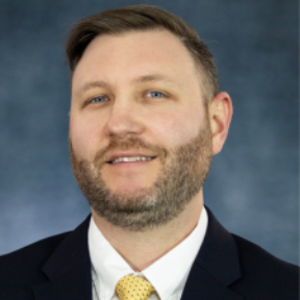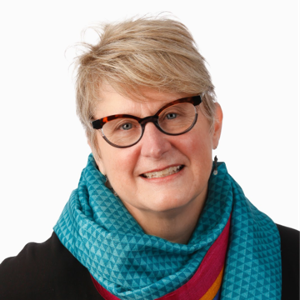Certification Insider: Fall 2022
NASFAA asked four FAACs to share insights about their experience with the Certified Financial Aid Administrator® (CFAA) Program. Below are their responses.
 |
 |
 |
 |
| Alisha Cederberg Kalamazoo Valley Community College |
Kristopher Hatcher Gulf Coast State College |
Cristen Alicea University of the Incarnate Word |
Susan Teerink Marquette University |
Why did you pursue this certification?
- Cristen: For me, it was partly personal pride in having a confirmation of my knowledge and dedication to our profession, and partly wanting to show our campus community that this is a legitimate career with very skilled and knowledgeable professionals. I’m lucky to work in a place that values us, but we have had perceptions in the past of just being “paper-pushers.” I feel like credentialing validates our years of study and illustrates that value and commitment to our community.
- Alisha: I was president-elect of MSFAA and had been a director for two years, so I wanted to set a good example. I had spent that time implementing “new” programs and events, but had not really gone through why we do what we do. So, I took studying for the exam as an opportunity to review my office P&P and general operations.
- Kris: In my opinion, financial aid administrators are often seen as implementers and not policymakers. Certification, in part, is a means towards elevating our profession to a point where non-financial aid administrators recognize and acknowledge what we can bring to the table. Someone also said to me a year or so ago that knowledge is the currency of our profession. Demonstrating our knowledge by becoming certified is an extension of that concept.
- Susan: A colleague who was in the initial beta testing group encouraged a number of us to pursue certification to help establish credibility and build a solid foundation for the program. Many of us have been in the profession for many years so while achieving certification wasn’t necessary for our professional status, my colleague successfully argued we have an obligation to develop standards that validate our profession and the newer professionals coming behind us.
How did you prepare for the knowledge exam?
- Alisha: At first I was putting things on notecards and taking the FSA Training. After consulting with colleagues who were successful on the test, I was strongly encouraged to stop. Instead I choose to take a 360 view of my office using FSA Training as a guide. Not only did this help me prepare for the exam, it was a great opportunity to revisit my office and think critically about our operations. My experience answered 95% of the questions on the exam.
- Cristen: I took quite a few of the underlying credentials before attempting the exam. The self-study guides were extremely helpful, as well as sifting through AskRegs questions on specific subjects.
- Susan: I primarily used the NASFAA Self-Study Guides and focused on areas that I understand but are no longer part of my day to day responsibilities.
- Kris: I have nothing against NASFAA’s materials, and I am confident they are very helpful, but I rely on the Federal Student Aid Handbook in my everyday working life. Put another way, I grew up learning financial aid by reading the handbook, so I couldn’t have imagined studying any other way. Accordingly, I re-read the handbook for two straight days during my December 2019 holiday break.
What was the testing experience like?
- Alisha: I was so nervous because I took the test before the pandemic and not much was done through the webcam. However, it was super easy – and extremely professional. I never worried about time. It was much smoother than a credential – where I feel the clock ticking each time. I honestly do not remember how I did, but I know as I was taking it, I was killing the test. Again, unlike a credential where I flag every question and go back and second guess myself.
- Kris: The testing experience was good for me. That being said, the proctor had to ask me not to read questions to myself while I was taking the test.
- Cristen: It was very smooth, once I got set up. I took someone’s advice and closed my door and put a sign on it stating that I could not be disturbed, that testing was in progress. I wish I had prepared a little better in terms of the areas around my desk – I cleared off my desk, but also needed to clear out under it beforehand, so that took a little more time. Be prepared to show your area to the proctor to prove you don’t have study materials near you!
- Susan: It was very smooth. The most nerve wracking part was waiting for the proctor to log on. (During COVID when many institutions were utilizing virtual proctors, it took longer than normal for a proctor to log on.) I understand that is no longer the case. Follow the clear directions provided by NASFAA and you won’t have any issues.
How does the FAAC® designation benefit you?
- Susan: Because of my years of experience (nearly 30), I didn’t initially think that achieving FAAC® status would have any real impact on me. However, I have found that having the FAAC® designation behind my name has actually provided a level of credibility with other departments on my campus and other agencies that I interact with outside of my organization. Honestly, I am proud to have the designation behind my name. It is a constant reminder that what we do is important and it makes a difference.
- Cristen: To me, it’s a constant reminder to myself and others that I take my profession seriously, and that I’m dedicated to learning and compliance. We speak so much about service to students that I think it’s easy to forget how much of our time includes maintaining compliance with federal, state, and institutional governance. While not directly in front of the community’s eye, compliance is essential to maintaining institutional eligibility and keeping our doors open for our students. I hope more Financial Aid professionals will jump on board with these credentials, and especially the FAAC® designation. It shocked me to learn that only 18 people in my entire state have earned it! I don’t think it’s an issue of the knowledge not being there, but just having the time and funding to sit for the exam. We all know our time is pulled in 100 different ways, so I get that!
- Kris: The coolest benefit for me has been the Slack channel.
- Alisha: The designation gives me confidence and credibility. Additionally, when I was promoted from director to associate dean, my salary was reviewed for experience "points". Unlike NASFAA credentials, the FAAC® designation was considered equivalent to a professional license (compared to a CPA) and I was given a whole "point" for having it. This translated directly to an increase in my base salary.



